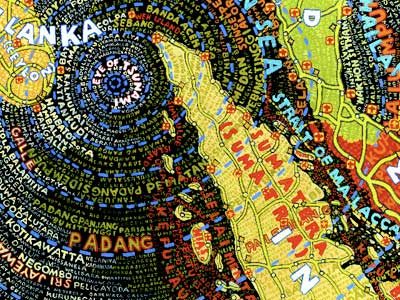CSR Decrypted
Corporate social responsibility (CSR), also known as corporate citizenship, responsible business, sustainable responsible business (SRB), or corporate social performance, is a form of corporate self-regulation integrated into a business model aiming to embrace responsibility for the impact of the company activities on the environment, consumers, employees, communities, stakeholders and all other members of the public sphere.
The term CSR came in to common use in the early 1970s and refers to the deliberate inclusion of public interest into corporate decision-making, and the honoring of a triple bottom line: People, Planet, Profit.
CSR demands that businesses manage the economic, social and environmental impacts of their operations to maximise the benefits and minimise the downsides. Key CSR issues include governance, environmental management, stakeholder engagement, labour standards, employee and community relations, social equity, responsible sourcing and human rights.
Beside “fulfilling a duty to society”, CSR brings a competitive advantage by improving access to capital, reducing risk, enhancing brand image, reducing costs and attracting, retaining and motivating employees.
So if CSR is so good why does it remain a controversial subject?
Criticisms and Concerns
Critics of CSR argue that corporations are only responsible to their shareholders and not to the entire society. They accept that businesses should obey the laws of the countries within which they work, but see any additional initiatives as threats to capitalism and free enterprise.
In many instances CSR programs undertaken by companies such as British American Tobacco, the petroleum giant BP and McDonalds, are believed to distract the public from ethical questions posed by their core operation. It seems that the goal of their CSR efforts are not to benefit the society but to maximize their commercial profit by raising the company’s reputation.
Some critics claim that CSR programs are easily misused. Some companies may accept self-regulatory policies to avoid more strict regulations imposed by law or various pressure groups (for example, workers unions). At times, simply obeying laws is being presented to the public as voluntary and dragged under the CSR umbrella.
As CSR became mainstream, most companies now incorporate their environmental and social policies into the wider PR and Marketing Strategies. Yet some companies seem to try harder than others. Every year Ethisphere magazine publishes the globally recognized World’s Most Ethical Companies Ranking to honour the best CSR efforts. Not surprisingly Starbucks, Nike and Marks & Spencer made it to the list. But among the 2009 winners are also: BMW, Toyota Motor, HSBC, T-Mobile and even McDonald’s! For the full ranking of awarded companies visit the Ethisphere’s website.
"Good Guys" in Business: Patagonia
To illustrate what in my opinion is a good CSR execution I chose the following two examples.
To read more about Patagonia's corporate social responsibility visit the website.
Cafedirect is the second example of exceptional CSR I wanted to bring up. Much closer than Patagonia, closer than Patagonia's home the USA there is a socially responsible business that stands out in the mainstream crowd. You have probably already stepped inside the Regent Street's Cafedirect for a cup of coffee with a difference. You might enjoy the aromatic beverage even more knowing the company's CSR.
Cafedirect is currently one of the largest Fairtrade hot drinks companies in the world. As a a UK-based alternative trading organization, Cafedirect is a mission-driven business aligned with the Fair trade movement, aiming to contribute to the alleviation of poverty in developing regions of the world by establishing a system of trade that allows marginalized producers in developing regions to gain access to developed markets.
The company was founded in 1991 by Oxfam, Traidcraft, Equal Exchange Trading and Twin Traiding as a response to a global collapse in coffee prices. Cafedirect was the first coffee brand to carry the Fairtrade Mark in the UK and the first Fairtrade product to be sold in supermarkets such as Co-op and Safeway.
Currently, Cafédirect works with over 260,000 coffee, tea, and cocoa growers in 40 registered Fairtrade producer organisations across 14 countries, affecting the lives of over 1.2 million people in developing countries.
Cafédirect's mission is to "change lives and build communities through inspirational, sustainable business" and to focus the company's "social and economic impact in the developing world".
Cafedirect's Chief Executive, Penny Newman, believes that at this stage in the company development, the focus needs to be placed on the mission. Cafedirect resists to become a victim of competitive pressures. The company refuses to lose its sense of directions.
Penny is dismissive of imposed measures such as Corporate Social Responsibility. "It is only about reputation and how it affects the bottom line," she says. "Cafedirect is about ethics and values - these are part of our DNA."










